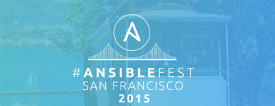FOSS Week in Review
It has been a busy week in the FOSS world, with a lot of buzz about developments in the larger sectors of the FOSS realms. So let’s jump in, shall we?
 Linux Foundation looks to Open APIs: After corralling the widely divergent world of containers, the Linux Foundation now sets its sights on the API economy and making application program interfaces, or APIs, easier to find, according to a report from InfoWorld. For the uninitiated, open APIs, sometimes called public APIs, describes an application program interface providing developers with programmatic access to a proprietary software application.
Linux Foundation looks to Open APIs: After corralling the widely divergent world of containers, the Linux Foundation now sets its sights on the API economy and making application program interfaces, or APIs, easier to find, according to a report from InfoWorld. For the uninitiated, open APIs, sometimes called public APIs, describes an application program interface providing developers with programmatic access to a proprietary software application.










 In addition, related to the purchase or not, Ansible has also started getting some traction at this week’s
In addition, related to the purchase or not, Ansible has also started getting some traction at this week’s 


 The odd thing was that if you didn’t know that attendance was up, you might’ve thought that the numbers were actually going down.
The odd thing was that if you didn’t know that attendance was up, you might’ve thought that the numbers were actually going down.